Related Research Articles
Hermione most commonly refers to:

The Winter's Tale is a play by William Shakespeare originally published in the First Folio of 1623. Although it was grouped among the comedies, many modern editors have relabelled the play as one of Shakespeare's late romances. Some critics consider it to be one of Shakespeare's "problem plays" because the first three acts are filled with intense psychological drama, while the last two acts are comic and supply a happy ending.
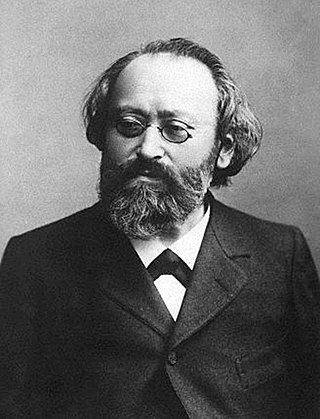
Max Bruch was a German Romantic composer, violinist, teacher, and conductor who wrote more than 200 works, including three violin concertos, the first of which has become a prominent staple of the standard violin repertoire.
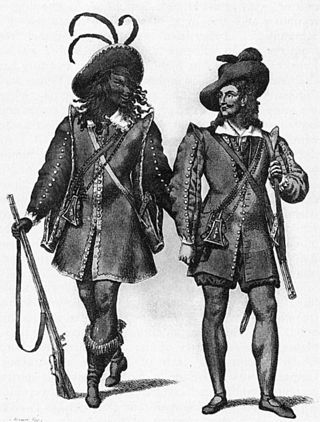
Der Freischütz is a German opera with spoken dialogue in three acts by Carl Maria von Weber with a libretto by Friedrich Kind, based on a story by Johann August Apel and Friedrich Laun from their 1810 collection Gespensterbuch. It premiered on 18 June 1821 at the Schauspielhaus Berlin. It is considered the first German Romantic opera.

Otello is an opera in three acts by Gioachino Rossini to an Italian libretto by Francesco Berio di Salsa after William Shakespeare's play Othello, or The Moor of Venice; it was premiered in Naples, Teatro del Fondo, 4 December 1816.
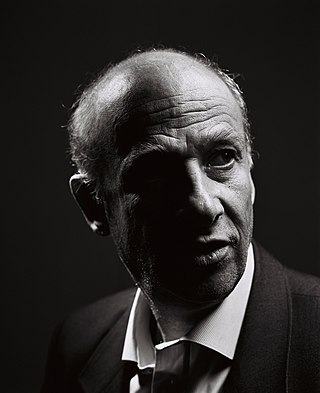
Luc Bondy was a Swiss theatre and film director.
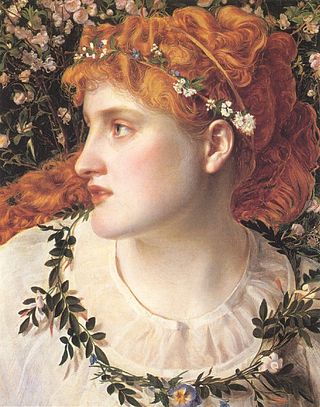
Perdita is one of the heroines of William Shakespeare's play The Winter's Tale. She is the daughter of Leontes, King of Sicily, and his wife Hermione.

Der Zarewitsch is an operetta in three acts by Franz Lehár. The German libretto by Heinz Reichert and Bela Jenbach is based on the play of the same name by Polish author Gabriela Zapolska. Lehár composed the work, one of his later operettas, as a vehicle for Richard Tauber, the acclaimed Austrian tenor. The work received its first performance at the Deutsches Künstlertheater in Berlin on 16 February 1927, with Tauber and Rita Georg in the leading roles.
Heinrich Bulthaupt was a German poet, dramatic author, and lawyer, as well as librarian of his native town, Bremen. Many of Bulthaupt's works found considerable widespread popularity in the lyrical and dramatic genres.
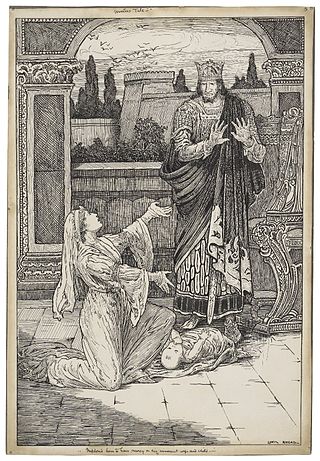
King Leontes is a fictional character in Shakespeare's play The Winter's Tale. He is the father of Mamillius and husband to Queen Hermione. He becomes obsessed with the belief that his wife has been having an affair with Polixenes, his childhood friend and King of Bohemia. Because of this, he tries to have his friend poisoned, has his wife imprisoned, and orders his infant daughter to be cast out. The daughter, Perdita, survives nonetheless when she is discovered in her basket on the coast of Bohemia by shepherds who adopt and raise her. His young son dies of grief at his mother's plight, and Hermione faints on hearing the news and is reported dead. Leontes comes to understand his faults, and is filled with remorse for his ill-treatment of his Queen. At the end of the play, he is reunited with daughter and his wife, who returns from death in the play's mysterious finale.

Victor-Alphonse Duvernoy was a French pianist and composer.
Der Göttergatte is an operetta, originally with a prelude and two acts, by composer Franz Lehár. It used a German language libretto by Viktor Léon and Leo Stein, and premiered on 20 January 1904 at the Carltheater in Vienna.
Ritter Blaubart is a fairy-tale opera in three acts by the Austrian composer Emil Nikolaus von Reznicek. Herbert Eulenberg wrote the German libretto, based on his own five-act play with the same title, which had been first performed unsuccessfully at the Lessing Theater in Berlin in 1906.

Carl Wilhelm August Blum was a German singer, librettist, stage actor, director, guitarist and opera and song composer. Philip J. Bone wrote that Blum was "a universal genius, uniting in one person the poet, the dramatist, composer, singer and performer." He was composer to the Court of the King of Prussia.
The Winter's Tale is a ballet in three acts choreographed by Christopher Wheeldon to a commissioned score by Joby Talbot. The ballet is based on the play of the same name by William Shakespeare. With scenery and costumes designed by Bob Crowley, lighting designed by Natasha Katz, and special stage effects designed by Daniel Brodie and Basil Twist, it was a co-production of the Royal Ballet and the National Ballet of Canada. It was first presented at the Royal Opera House, London, on 10 April 2014. The North American premiere occurred the following year.

The Winter's Tale is a 1910 American silent short drama produced by Thanhouser Company. The plot is an adaptation of The Winter's Tale by William Shakespeare and requires fore-knowledge of the plot in order to understand the condensed one reel work. The film focuses on the conflict arising from two Kings, one of Bohemia and one of Sicily, during a meeting. Queen Hermione enrages her jealous husband, Leontes, by entertaining Polixenes. Leontes decides to kill him with poison, but the plan is foiled by the courtier tasked with the assassination. For this, Leontes imprisons his wife. Hermione gives birth to a daughter and Leontes orders the baby to die out in the wilderness. Hermione is then brought before the court and apparently dies after interrogation. Fifteen years pass and Polixenes confronts and then secretly follows his son, appearing as he declares his intention to marry a shepherdess. The two lovers seek protection with Leontes, the King of Sicily. Mourning and repentant for his past actions, Leontes learns the shepherdess is his daughter and blesses the marriage of the lovers. The royal party goes to see a statue of the late queen Hermoine which is revealed to be alive. The cast includes Anna Rosemond, Frank H. Crane and Martin Faust, but the directorial and production credits for the film are unknown. The production was a success for the Thanhouser Company and the film was met with positive reception following its May 27, 1910 release. The film survives in the Library of Congress, but it is missing the final scene of the production. The surviving print suffers from significant deterioration.
Wintermärchen is an opera by Philippe Boesmans to a libretto by Luc Bondy and Marie-Louise Bischofberger after Shakespeare's The Winter's Tale. It was premiered on 10 December 1999 at La Monnaie in Brussels. The German premiere followed in 2001 at the Staatstheater Braunschweig.
The Winter's Tale is an opera in three acts by Ryan Wigglesworth. The libretto is by the composer, based on the play of the same name by William Shakespeare. The opera, in a production directed by Rory Kinnear, and conducted by the composer, was premiered at the English National Opera on 27 February 2017.
Die Loreley is an opera by Max Bruch to a German-language libretto by Emanuel Geibel, originally intended for Felix Mendelssohn.
References
- ↑ Operas in German: A Dictionary, Margaret Ross Griffel, 1990, p. 304: "Hermione, opera in four acts by Max Bruch; libretto by Emil Hopffer after Shakespeare's A Winter's Tale; March 21, 1872, Berlin"
